If you turn on your heat and notice a bad smell, don’t panic! There are a few things you can do to get rid of the smell and keep your home smelling fresh and clean. In this blog post, we’ll share some tips on how to fix a bad smell when turning on your heat. Keep reading to learn more!
Bad Smells You May Have When Turning on Heat
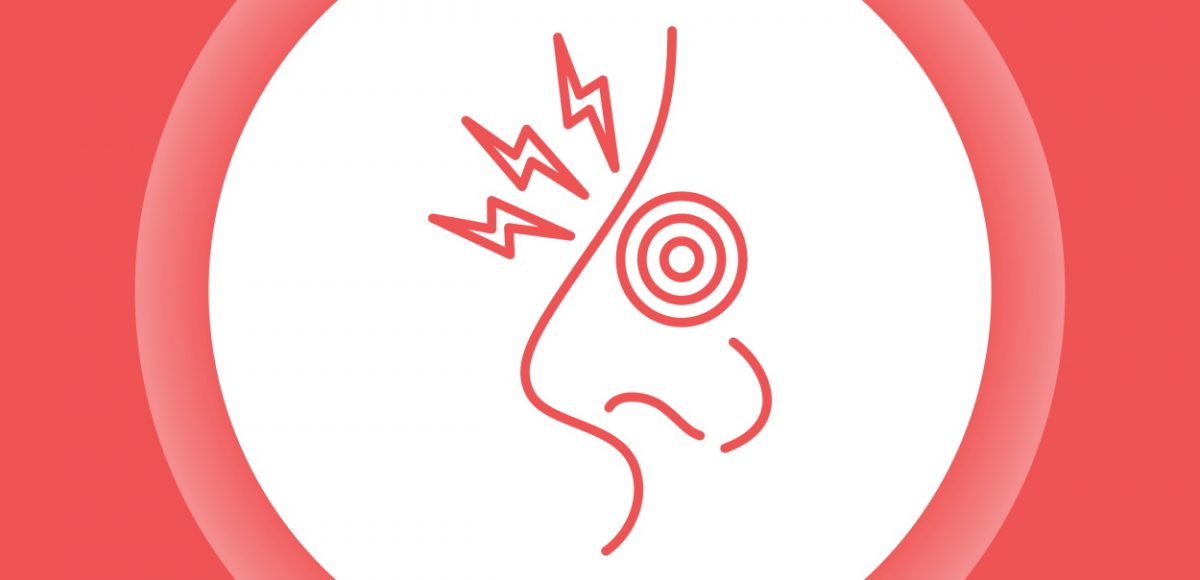
Heat Smell #1: Dusty or Burning Smell
If you notice a dusty or burning smell coming from your vents when turning on the heat, this can be caused by dust, dirt and debris that has accumulated in your heating system. This is usually a sign that your air filters need to be replaced or cleaned.
Heat Smell #2: Musty Odor
When you turn on the heat for the first time of the season, it can cause a musty odor. This is typically due to mold and mildew that has built up over time during periods of no use. To eliminate this smell, try cleaning interior surfaces such as carpets, furniture, walls and floors with an antifungal cleaner. You may also need to have your ventilation system checked for any blockages or leaks that could be causing stagnant air and the musty odor. [1]
Heat Smell #3: Rotten Egg Odor
If you smell a rotten egg odor when turning on the heat, this is often caused by a buildup of gas within your HVAC system. If left unchecked, this can be very dangerous as it can lead to carbon monoxide poisoning.
Heat Smell #4: Electrical Burning Smell
If you smell an electrical burning odor, this is likely caused by a wiring issue and can be dangerous. It’s important to have a professional technician come out immediately to inspect your system and determine the cause of the smell.
Causes of the Heating System Having a Weird Smell
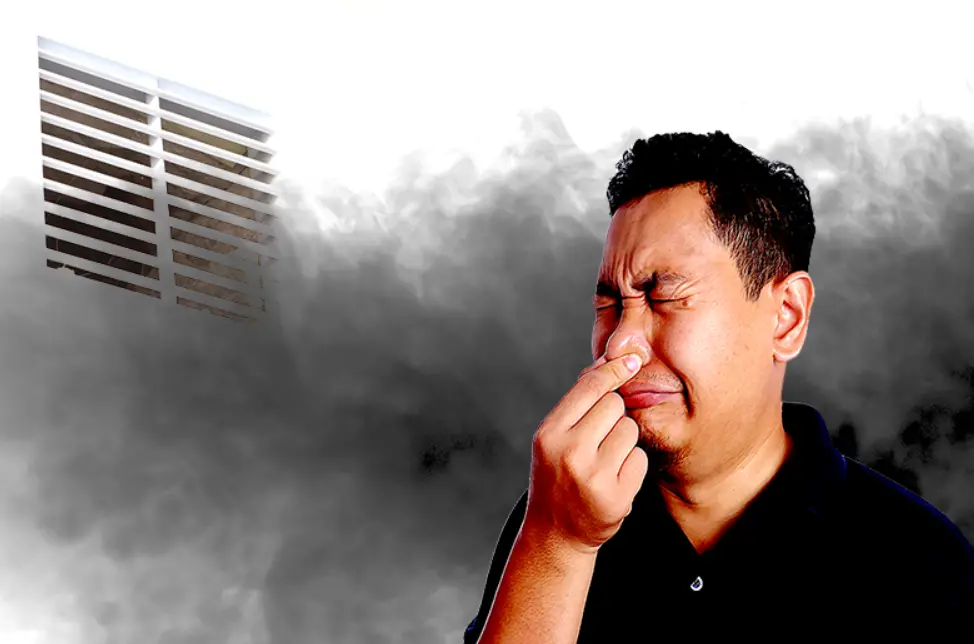
Build-Up of Dust and Debris
The heating system usually collects dust and debris over time. This can be caused by regular use or lack of maintenance. When the heating system is turned on, this dirt and grime are heated up and released into the air which causes a musty smell.
Mold or Mildew
If there is an excess of moisture in your home, then mold may have developed within your heating system. This is often due to a leaky pipe or other plumbing issue, so it’s important to find and fix any water leaks as soon as possible. [2]
Clogged Air Filters/Vents
Air filters are designed to trap airborne particles from re-entering your living space, however if they become clogged with dirt or other debris, they can start to smell. The same is true for vents and ducts – if any of these areas become blocked or unclean, the smell can travel through your home when the heat is turned on.
Furnace is Overheating
If the furnace is overheating, it can start to smell like burning plastic or metal. This is often due to a faulty igniter, blocked vents, or other issues with the internal components of your system.
Gas Leak
If you detect a smell similar to rotten eggs, it could be caused by a gas leak in your home. Gas leaks should always be investigated immediately as they can be extremely dangerous.
Things to Do to Prevent Your Heating System from Giving a Weird Smell
Change the air filter regularly: Air filters should be changed at least once every three months, and if you have pets or allergies, consider changing them more often. This will help keep the air clean and prevent any strange smells from being circulated throughout your home.
Clean the registers: Keep an eye out for dirt or debris that might be sticky around your HVAC system’s registers and vents, as this can cause bad smells to linger in your home. Vacuum these areas to remove any dirt buildup, then use a damp cloth to wipe them down.
Check for leaks: Leaks from your HVAC system can create a strong, musty smell in your home, so it’s important to check the supply and return lines regularly for any signs of moisture or water damage.
If there is a leak, contact a professional immediately to get it fixed as soon as possible.
Clean the condensate line: Condensation can build up in the condensate line, creating an unpleasant odor that can spread throughout your home. To prevent this problem, make sure you clean out the condensate line every month using a vacuum cleaner or damp cloth.
Inspect ductwork: Dirty air ducts are one of the most common causes of bad smells in homes with heating systems. Have a professional inspect your ductwork to make sure it’s free of any debris or dust that could be causing the smell, and have them clean as needed.
Call in an HVAC technician: If you’ve gone through all these steps and still can’t seem to get rid of the bad smell coming from your heating system, it may be time to call in an HVAC technician. They can take a look at your system and diagnose any underlying issues that might be causing the bad smell and help you find a solution.
Replace old components: If some of the components on your heating system are too old, they could be giving off strange odors due to wear-and-tear. Consider replacing these components to help get rid of any smells they may be causing. Taking the time to keep your HVAC system in good condition can help prevent strange smells from spreading throughout your home and ensure that you’re always enjoying clean, fresh air. [3]
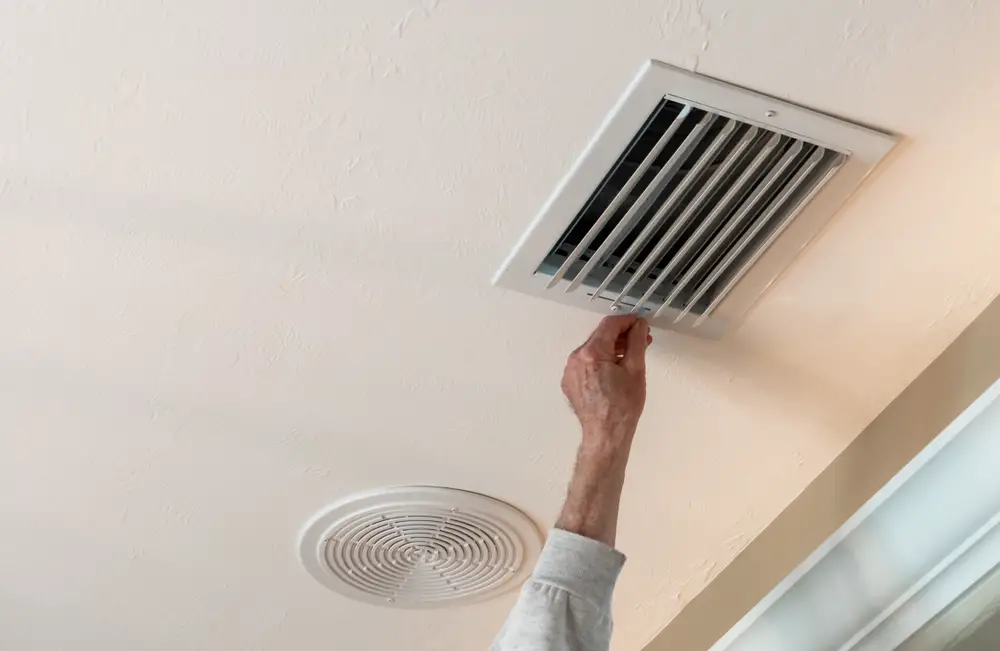
By following these simple steps, you can make sure your home stays free of any weird odors and enjoy a comfortable living space all year round.
When You May Need a Furnace Repair
If the bad smell persists after changing your air filters and regularly cleaning around your furnace, you may need to call a professional for a furnace repair. If the smell is accompanied by strange noises from the furnace or if it smells like something is burning, it’s best to contact an HVAC technician as soon as possible. It could be caused by things such as clogged burners, gas leaks, electrical problems, loose connections, or other more serious issues that are best left to a professional.
Additionally, if you have not had regular maintenance on your system in the last year—or ever—it’s important to make sure everything is running properly. A trained technician will be able to diagnose any problems with your system and offer advice on how to fix them. They may recommend replacing parts, cleaning the unit, or other solutions depending on the cause of your bad smell.
Ultimately, it is important to keep up with regular maintenance and inspections of your HVAC system to prevent issues from occurring in the first place. Regularly changing air filters and keeping an eye out for strange smells will help you keep your home comfortable and safe all year round. If you do detect a bad smell when turning on your heat, be sure to address the issue as soon as possible in order to avoid any further damage or costly repairs. [4]
Cost-Effective Ways to Heat the House
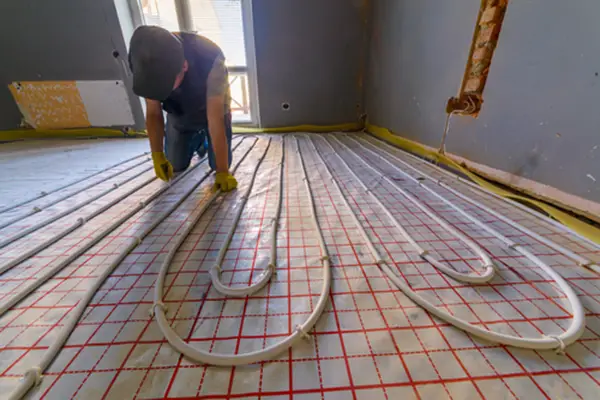
If you’re looking for ways to heat your home without breaking the bank, there are some cost-effective alternatives. You can start by making sure your windows and doors are properly sealed so that warm air doesn’t escape your house. This will help keep your energy bills down as well as make sure that any smells won’t be able to enter from the outside.
Another simple way to save money is to install a programmable thermostat in your home. This will allow you to set temperatures for different times of day and even when you’re away from home, so that you don’t waste energy heating an empty house. It’s also important to use ceiling fans in order to circulate warm air throughout the house without having to turn up the heat.
Finally, you can also consider investing in insulation for your home to further reduce energy bills and help keep the warmth inside. This will not only save you money but also make sure that any unpleasant smells won’t be able to penetrate your walls.
These cost-effective solutions can help you heat your house without putting a strain on your wallet or having to worry about bad smells again. By taking some simple steps, you’ll be able to enjoy the warmth of your home without worrying about foul odors coming from the vents. With these tips, you’ll be able to keep your house comfortable and smelling fresh all year round.
Types of Heaters
There are a few types of heating systems commonly found in homes: forced air, radiant heat, and baseboard heaters. Forced air is the most common form of home heating and it uses ductwork to distribute heated air throughout your house. Radiant heat warms up by sending hot water through tubes in the floor or wall that radiate heat into the room. Baseboard heaters use electric coils to generate warmth and are typically located near the lower walls in each room where they can be controlled with a thermostat.
In most cases, bad smells coming from a heater are caused by dust buildup inside its core components such as its duct work, vents, burners or blower motor. If you suspect this is the cause of the bad smell, it’s important to have your HVAC system serviced to ensure that all components are functioning correctly. [5]
FAQ
Why does my house smell bad after turning heat on?
The most common cause of a bad smell when turning on the heat in your house is due to dust and dirt that has accumulated in the air vents or ductwork over time. Another potential cause could be mold spores, which can accumulate in damp and warm areas such as inside ventilation systems.
How do I get rid of the bad smell?
Cleaning and disinfecting the air vents and ductwork is one way to get rid of the bad smell. Use an air conditioning filter cleaner or spray disinfectant directly into your air vents and leave it for at least 15 minutes before vacuuming it up with a vacuum cleaner with a HEPA filter attachment. You may also need to have your ducts professionally cleaned if they are particularly dirty. Additionally, you can also use an ozone generator to help remove odors and bacteria from the air. An ozone generator is a device that releases ozone gas into the atmosphere which has been proven to reduce bad smells and kill bacteria in the air.
What should I do if there is mold in my ventilation system?
If you suspect there is mold in your ventilation system, it’s important to have a professional inspect it. Depending on the type of mold and level of infestation, they may recommend cleaning or replacing parts of your ventilation system. If left untreated, mold can cause serious health problems for those living in the home as well as costly repairs down the line.
How long does it take for the heater smell to go away?
The length of time it takes for the heater smell to go away will depend on the source of the odor. If you have recently turned on your heat for the first time, then depending on your HVAC system, it could take less than 24 hours or up to several days for the smell to dissipate. However, if there is an underlying issue such as a dirty air filter, clogged drain line, or other mechanical problem with your HVAC system, then it may take longer before the bad smell goes away entirely. It’s important to identify and address any potential problems in order to ensure that your home remains safe and comfortable.
Is the heater smell harmful?
The smell of a heater turning on can be quite strong and unpleasant, but it is not likely to be harmful to your health. However, if the odor persists or worsens after several days, then there may be an underlying issue in your HVAC system that needs to be addressed. Poorly maintained systems can lead to poor indoor air quality, which could have adverse effects on your family’s health over time.
Useful Video: Why Does My House Smell Bad When I Turn On The Heat? Tips To Help Track Down The Cause Of That Smell
Conclusion
If you have a bad smell when turning on your heat in your house, it is important to identify the source of the odor and take appropriate action to fix it. In some cases, this may mean replacing parts or cleaning out components of your heating system. Other times, resolving the issue could be as simple as changing filters regularly or filling up a water tank that is low. If the problem persists after attempting DIY methods then contact a professional HVAC technician for help. With their expertise and experience they can diagnose and resolve any issues with your heating system quickly and efficiently so you can get back to enjoying warm comfort in your home!
No matter what type of issue you are facing with your heating system, it pays off to take a proactive approach in addressing it. Doing so will help to ensure that your home is safe, comfortable, and smells fresh! Good luck with resolving any issues you may be having with your heating system.
References
- https://cityheatandair.com/weird-smells-you-might-notice-when-you-turn-on-your-heat/
- https://www.servicelegends.com/why-your-house-smells-bad-when-you-turn-on-the-heat/
- https://georgebrazilhvac.com/blog/4-weird-smells-you-might-get-when-you-turn-on-your-heat
- https://www.professionalservicestoday.com/heater-smells-like-burning
- https://www.bewarmer.co.uk/electric-heaters-comparisons-recommendations/





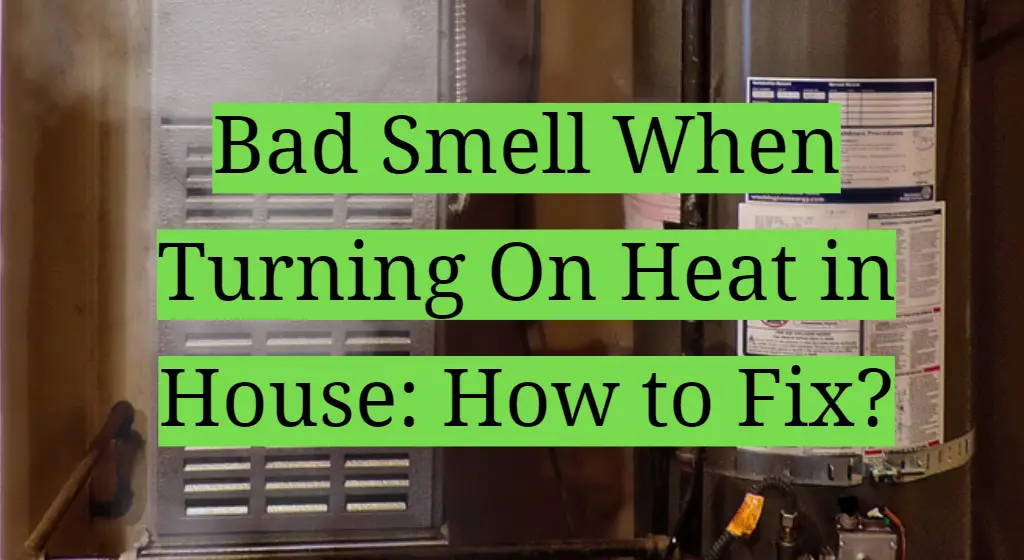

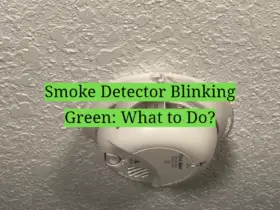

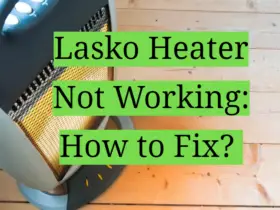
Leave a Reply